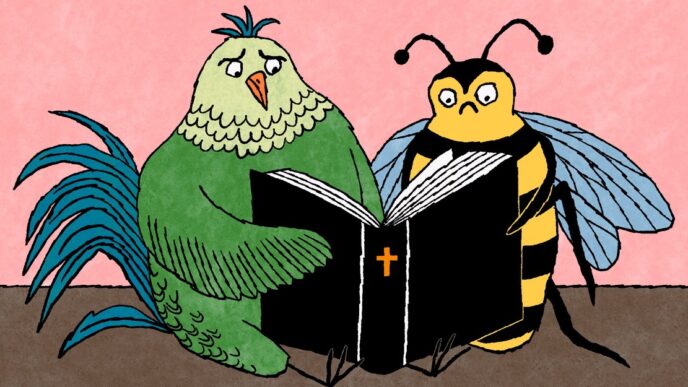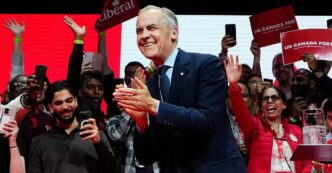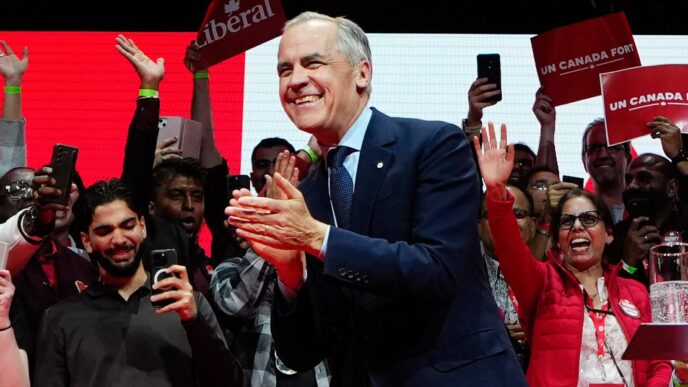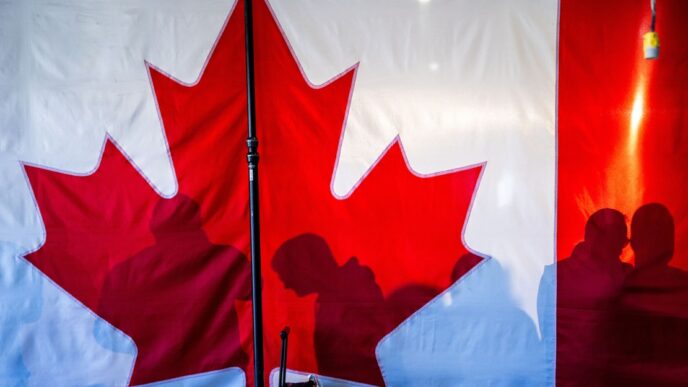Just when you think you’ll never laugh again, Columbia University students pick up a new cause: free speech. Who among us wants to step on the punch line by asking questions? For example, do these newfound champions of the First Amendment really mean it, and will their next move be to champion a Zionist whose speech has been policed (probably by them) and demand that his right to free expression be upheld? Magic 8 Ball says: Don’t count on it.
Two kinds of speech are routinely censored on college campuses: anything that could come under the broad taxonomic category of “hate,” and certain statements of fact that might cause pain to community members. The vague goal is a student life in which feelings of “belonging” and “inclusion” are extremely important, and actively fostered. Students have come to understand the college campus as a place where never is heard a discouraging word.
Observers question whether these institutions are thereby inculcating fragility in their students instead of resilience. Yes and no. Protesters at Columbia certainly seem to be swayed by the notion that speech can be a form of violence. Yet they are anything but fragile. Casting an event which included the murder of children as an act of “armed resistance” requires cool calculation. (What, exactly, was Hamas resisting in those children? )
I have a pretty high tolerance for student protests, even as the outrageous cost of college has turned many of them into exercises in bourgeois decadence. But the Columbia protests have been different from past campus uprisings in several stark ways. They have exposed the whole “belonging” and “inclusion” system of handling offensive speech as fraudulent. The amount of intimidation and harassment experienced by Jewish students over the past year and a half should have been more than enough to alert that particular cavalry, but Jewish students turn out to belong to the only religious minority unprotected by it. (A regular talking point to emerge from last year’s encampment was that no Jewish students at the university had reason to feel harassed or intimidated by the protests, an assertion that was at best ignorant and at worst sinister.)
And yet despite my strongly held feelings about these matters, when I learned that Mahmoud Khalil had been arrested in the lobby of his New York apartment building, handcuffed, folded into an unmarked vehicle by men who would not give their names, and transported first to a facility in New York, then to a detention center in New Jersey, and then to one in Louisiana, every siren in my body screamed.
Down to the marrow of my bones, I am an American. And we don’t do this.
Everything that has failed in American universities has failed because of the opposition to freedom of expression. It’s a sorrowful subject for me because I am an almost literal child of UC Berkeley’s Free Speech Movement, which kicked off when I was 3 years old, a faculty kid among thousands of them. That movement followed an earlier struggle for free expression: the fight against an anti-Communist loyalty oath that faculty and staff were required to sign beginning in 1949. As a girl, I knew adults who had suffered the consequences of refusing to do so. One of them was the medievalist Charles Muscatine, my father’s colleague in the English Department, whose previous crimes against the state included storming the beaches of Normandy. Years later, he explained why he didn’t sign:
“It was a violation of academic freedom, which is the idea that in a free society, scholars and teachers are allowed to express and believe anything that they feel to be true,” he said. “As a young assistant professor, I had been insisting to the kids that you stick to your guns and you tell it the way you see it and you think for yourself and you express things for yourself, and I felt that I couldn’t really justify teaching students if I weren’t behaving the same way. So I simply couldn’t sign the oath.”
Muscatine knew he could lose his job because of it, but he was a principled man and willingly left the university after being fired. A dramatic legal battle took place, in which the cause of academic freedom was pitted against Red Scare thuggery, and in 1952, the First Amendment won big. Many fired faculty, including Muscatine, returned to the university.
More than a decade later, however, a second battle at Berkeley—concerning not compelled speech but freedom of expression itself—would change the nature of campus life forever. In the fall of 1964, a group of students who had gone to Mississippi to take part in Freedom Summer returned to campus, eager to tell their California peers what was happening in the South. The students set up tables near Sproul Plaza—then, as now, a locus of student life. They were told to disband; political speech was not allowed.

The university’s intention was apparently to squash anything that might encourage racial tension, and obviously it was asserting a power it did not possess. As the students of the Free Speech Movement pointed out, the university was a public institution, and they did not forfeit their constitutional rights when they stepped onto campus. The university’s administration had no honest way to resist this challenge, and the students won.
I grew up the daughter of a man who, like Muscatine, had also seen combat in the Second World War, who stood firmly on the side of the Free Speech Movement, and whose belief in a university’s commitment to academic freedom was absolute. I knew that the search for truth required that speech must always, always be protected, and I knew that tenure was not a sweet deal that promised a lifetime’s employment, but a guarantee that no matter what political pressure was brought to bear on a scholar and his work, he would not lose his job because of it. If students and faculty cannot speak, write, and think freely, a university is an imitation of what it ought to be.
One night last spring, dozens of protesters at Columbia participated in the time-honored tradition of occupying Hamilton Hall. (The question of how many of these people were actually students at Columbia and its affiliated institutions is a charged one.) Keen students of the ways of this particular form of “resistance,” they took hostages of their own: three maintenance workers who were inside the building when the protesters entered.
Two of the three men—Mario Torres and Lester Wilson—spoke on the record with The New York Times in a May 8, 2024, article. Torres was at work on the building’s third floor when he heard a commotion below. He found five or six protesters blocking a staircase with chairs. Proving himself to be the single best employee of Columbia University since Lionel Trilling clapped his erasers a final time and went home for good, Torres said, “What the hell is going on? Put it back. What are you doing?”
Torres said he was told that he didn’t make enough money to get involved and was offered “a fistful of cash” to look the other way.
To that Torres replied, “I don’t want your money, dude. Just get out of the building.”
It was a face-off between the values of the Ivy League and those of the working class, and I know exactly where I stand on that particular matchup.
In his interview with the Times, Torres, who says he was injured during the incident and bootlessly called public-safety officers for help, spoke for many of us when he said of Columbia, “I cannot believe they let this happen.”
Wilson, another maintenance worker, went down to the ground floor only to find that the main doors had been shut tight with zip ties. “So, I begged them,” Wilson said. Eventually someone cut the ties and allowed him to leave (the other two men were allowed to leave soon after that). When a maintenance worker has to beg for his freedom, his fate in the hands of people whose messes he literally has to clean up, you have to wonder if these people are on the right side of anything at all.
In their complaints to the Equal Employment Opportunity Commission, which recently opened an investigation into their claims, Torres and Wilson report something we have not heard before: that long before the spring of 2024, they had been repeatedly ordered to erase swastikas off Columbia University chalkboards. I am not inclined to disbelieve the testimony of these two hardworking men.
To believe in free speech means that you support the cause even when the speech in question is repugnant to you. In a perverse way, you almost run to those cases; it’s how you keep clean accounts with yourself. For this reason, I am on Mahmoud Khalil’s side.
To the degree that any layperson can understand the range of legal issues undergirding his case—which include a law from the anti-Communist 1950s and the apparently undecided issue of the extent to which a noncitizen has First Amendment rights—what is clear is that the government’s desire to deport Khalil is largely related to the nature of his political speech. A two-page memo about Khalil by Secretary of State Marco Rubio released earlier this month does not allege any criminal activity.
Yet Khalil’s position that a genocide is occurring in Gaza is exactly the kind of potentially offensive but protected speech America was designed to tolerate. Our country has had a legally enforceable right to free speech since the 18th century, and we did not become great in spite of it. We are the inheritors of Thomas Jefferson and James Madison, not Joseph McCarthy or Leon Trotsky.
If America is folding up its tent, as it perhaps seems to be doing, hold your head high. Once you were part of the greatest idea in the history of the world.














